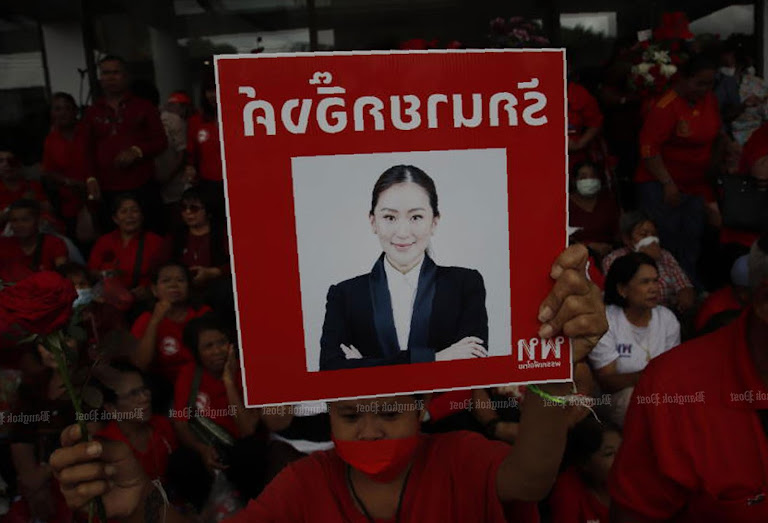Thailand’s Cabinet Shuffle: Power Plays and Entrenched Elites Reshape Politics
Elite maneuvering and familial networks define reshuffle, revealing Thailand’s struggle against entrenched power structures impacting its democratic future.

Thailand’s political theater, to the outsider, often reads like a choose-your-own-adventure novel penned by Franz Kafka: a dizzying spiral of coups, constitutions seemingly written in disappearing ink, and leaders whose charisma often obscures the less photogenic realities of power. But squint a little, and the chaos resolves itself into a recognizable, if deeply unsettling, pattern: a perpetual tug-of-war between entrenched elites, punctuated by cabinet reshuffles that reveal less about policy innovation and more about the iron grip of Thailand’s enduring power structures. Prime Minister Paetongtarn Shinawatra’s latest cabinet shake-up, now awaiting royal assent, is merely the latest act in this ongoing drama. relevant text
The reported moves aren’t just about filling empty seats. Phumtham Wechayachai’s likely elevation to the Interior Ministry, Gen. Nattaphon Narkphanit’s promotion to Defense, and Paetongtarn’s potential assumption of the Culture Ministry—these are chess pieces carefully deployed in a game where the board itself is constantly shifting. Paetongtarn mirroring Prayut Chan-o-cha’s retention of the culture portfolio as insurance against potential suspensions reveals a deeper anxiety — not about governing effectively, but about surviving politically in a system perpetually teetering on the edge of judicial intervention. It’s a reminder that the threat of legal challenges, often wielded by the courts, is not just a risk but a governing constraint, a meta-rule shaping every decision.
Ms Paetongtarn will also take up the culture portfolio in this reshuffle, enabling her to continue serving as culture minister in the event she is suspended from her role as prime minister. This is the same tactic once used by former prime minister and defence minister Prayut Chan-o-cha.
But reducing this to individual ambition is like analyzing a rainforest by focusing on a single tree. Consider Suriya Jungrungreangkit, Deputy Prime Minister and Transport Minister, whose nephew, Pongkawin Jungrungruangkit, is poised to become Labour Minister while simultaneously advising his uncle. This isn’t anomaly; it’s the rule. Thailand’s political ecosystem is fertilized by familial networks where influence, carefully cultivated over generations, flows through interconnected channels. Think of it as a kind of political heredity, where access and opportunity are passed down alongside wealth. It’s a system where who you know matters far more than what you know, and where policy often plays second fiddle to the preservation and expansion of familial power.
This, of course, is not a bug; it’s a feature. Thailand’s history is etched with the fingerprints of powerful dynasties whose economic clout seamlessly blends into political dominance. Political scientist Pasuk Phongpaichit, in her work on corruption in Thailand, has meticulously documented how these networks operate, effectively privatizing state resources for personal and familial gain. The 2014 coup, which installed Prayut Chan-o-cha, wasn’t an aberration but an inevitable consequence of this system’s inherent instability. To truly grasp the present, one must excavate the layers of historical compromises and power struggles, tracing the unbroken lineage of these structural inequalities. The New Opportunity Party’s rise, now allied with the ruling party and enjoying robust support from the energy sector, is a case study in how entrenched moneyed interests ossify into formidable political forces. The 1997 Asian Financial Crisis, for example, while devastating for many, ultimately concentrated more wealth and power in the hands of those already holding it, further entrenching existing inequalities.
The relentless churn of cabinet positions, the chameleon-like allegiances, the clandestine negotiations — all cultivate a pervasive cynicism that eats away at public trust. Each reshuffle reinforces the suspicion that policy is less about the common good and more about a zero-sum game of power consolidation. And in a nation haunted by coups and instability, the erosion of trust isn’t just a bad headline; it’s a threat to democratic development itself. So, while the headlines focus on a routine cabinet reshuffle, the real story is a persistent struggle to upend deeply ingrained structures of power and influence — a struggle where even the smallest adjustments can have profound consequences for Thailand’s future. The question isn’t whether this reshuffle matters; it’s whether, in the grand scheme of Thai politics, anything truly can matter.









